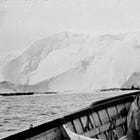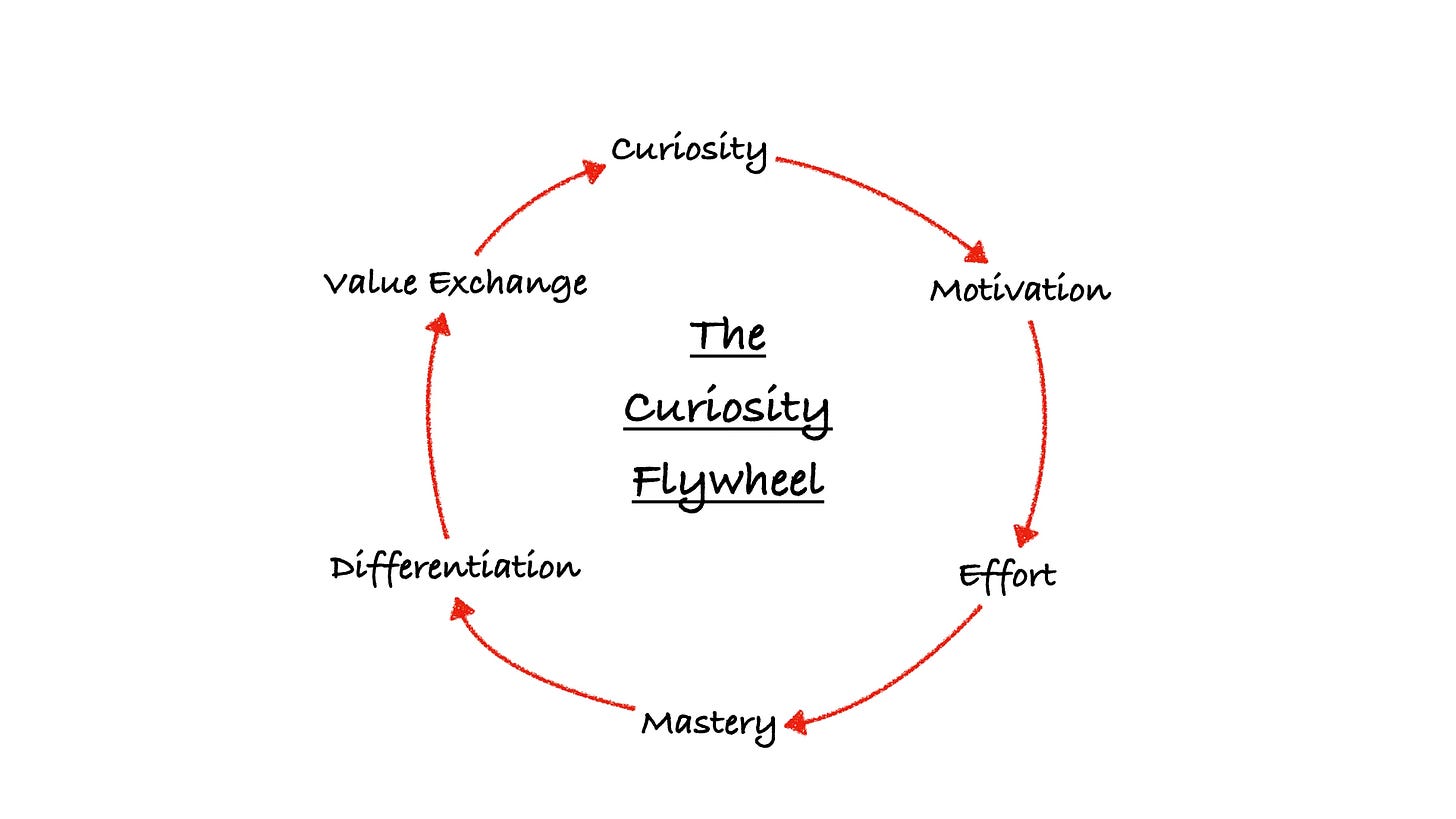I grew up in a very conventional family, where you were asked what you wanted to be when you grew up as a conversational icebreaker. I've always hated this question because I have serious commitment problems. Not romantically. But in the context of career choices.
I didn't want to commit to doing only one thing, I wanted to do several different things. The idea of making one choice for life was very scary.
Some people do have a vocation. But most of us don't. We just have a series of inclinations or trails that we like to follow. Some of them lead somewhere and we double down, some of them are dead ends. We zig-zag our way through life this way. Our lives only make sense backwards. In my experience, this has its frustrations and limits, but it is incredibly rewarding. I couldn’t cope with the predictability of knowing what I was going to do for the rest of my life. It would feel like a prison sentence.
The question isn't "What should I do with my life?", it's "What should I do next?" or "Which direction should I follow." And once again, I find common wisdom to be very wrong-headed.
Passion and Purpose are not the Answer
People love to say that you should "follow your passion." Passion is huge fun. It's fun because it's a burst of short-lived and intense emotional energy. And therefore it's not very good as long-distance fuel for any journey worth making.
How many of us know what we are passionate about anyway? And if you do, have you always been passionate about the same thing?
The same thing applies to “purpose.” Great if you’ve figured out what yours is, but even then, it might change.
Follow your Curiosity Instead
Curiosity is the best compass because it ignites a flywheel built on flow. I had an epiphany about this when I came across the concept of "Earned Secrets". The entrepreneurs who make it are the ones who uncover valuable truths by following their curiosity.
A flywheel is a virtuous cycle of reinforcing actions that compound over time, building unstoppable momentum. I believe curiosity is the ultimate flywheel for building a business, powering a self-reinforcing loop of insight, value and growth.
Here's how it works:
1. When you follow your curiosity, you naturally enter a state of flow. You dig deeper, ask better questions, and spot opportunities others miss. With practice, you develop real competence, the kind of differentiated expertise others will pay for.
4. This expertise and insight allow you to make meaningful contributions. Whether it's creating something new, solving complex problems, or sharing your expertise with others, you're now able to provide real value.
5. This ability to provide value is the key to earning value in return - whether that's in the form of money or reputation, which gives you greater autonomy to continue pursuing your curiosity.
So the flywheel comes full circle. By following your curiosity, you develop mastery. Mastery leads to differentiation and the ability to contribute value. Contributing value earns you the resources and freedom to follow your curiosity even further. And on and on it goes.
Studies show that autonomy and mastery - the very things curiosity enables - are essential to human well-being. Building a business around genuine curiosity sets you up not just for success, but for a greater sense of purpose and meaning.
How much better could it get? Autonomy to do what you would do anyway, by doing what you like to do. Of course, it’s not going to always be easy, and there will be setbacks. But this is what they mean when they say it’s the journey that counts.
Join Us!
If you like the sound of this and you want to build a business that harnesses your curiosity, please consider joining us at ClimbWorks, the Unaccelerator for those who want to choose their own adventure.
Why am I launching an Unaccelerator?
Let’s imagine that you’ve decided to start your own business. But you’re not sure how to go about it, and it feels daunting to quit your job and figure out how to do it by yourself. Maybe you’ve got a couple of friends who want to do it with you. But none of you has done this before, and there are significant gaps in your knowledge.
Something to Listen to for the Weekend
"most entrepreneurs...want a high chance of building a fantastic company. They wouldn't trade that for a low chance of building a hundred billion dollar company."
I've been following Tyler Tringas for years. His philosophy for "calm companies" resonates with the reason I've launched ClimbWorks.
This is a great interview--and an excellent dose of sanity. I can't believe I hadn't come across the Bootstrapped Founder podcast before.






I kinda feel a little freaked out, like how can you read minds?
I gave a talk for Barclays Eagle labs last week about a building block of the method I'm designing. I spoke about how I hate goals. I realised this year that for one reason or another I just can't do goals. I either snort with derision at them, or look at them like it's a mountain to be climbed (there were lots of amazing images of a mountain range in there).
And what do you do when you've reached that goal? like standing on top of a mountain, it's very breathtaking for a hot moment but then it's simply not. There's a come down that happens.
I'm 100% here for messy, unperfect journeys where you can enjoy the scenery along the way, turning left when you planned to turn right, pausing on something for longer than you might have done.